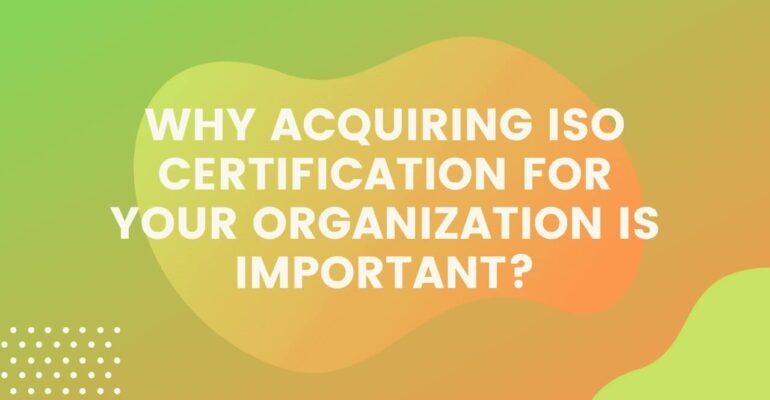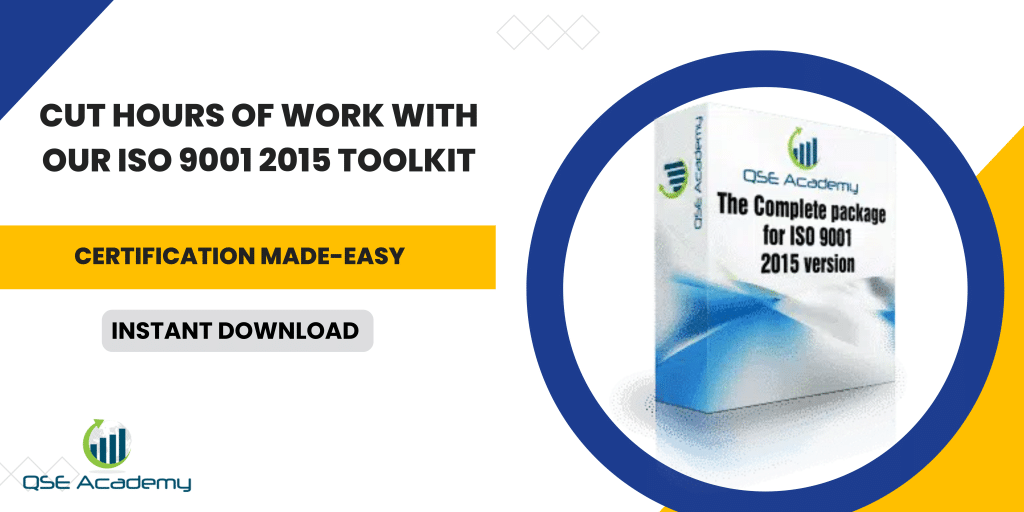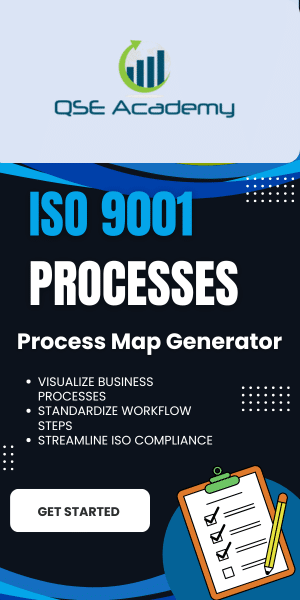Why Acquiring ISO certification is Important?
Last Updated on October 13, 2025 by Hafsa J.
Why Acquiring ISO Certification is Important?
Have you ever wondered why some businesses seem to have it all together—smooth operations, loyal customers, and opportunities knocking at their door? What’s their secret sauce? Well, one of the key factors could be acquiring ISO certification.
If you’re not familiar with the term, don’t worry—it’s not as complicated as it might sound. Acquiring ISO certification means your business meets internationally recognized standards for quality, efficiency, or safety (depending on the specific certification you go for). It’s like a global stamp of approval that says, “This business knows what it’s doing and does it exceptionally well.”
Now, why is acquiring ISO certification so important? For starters, it helps businesses stand out in a competitive market, build trust with customers, and streamline their operations for better results. Whether you’re running a small startup or a multinational corporation, this certification is more than just a piece of paper—it’s a strategic move that sets your business up for success.
Over the next few sections, we’ll explore exactly why acquiring ISO certification is such a smart decision and how it can transform your business. So, stick around—you’re about to discover why this simple step could be the best investment you make this year!
What is ISO Certification?
Alright, let’s break it down. What exactly is ISO certification, and why is acquiring it such a big deal for businesses? In simple terms, ISO certification is like a global gold standard for how businesses should operate. It’s awarded to companies that meet specific international standards for quality, safety, efficiency, or even environmental impact. Think of it as a seal of approval that shows your business is operating at the highest level.
Now, let’s talk about what it means to acquire ISO certification. The “ISO” part stands for the International Organization for Standardization, which develops these globally recognized standards. When your business meets these standards, you’re essentially telling the world, “We’re serious about doing things the right way.”
For example, if your goal is to consistently deliver high-quality products or services, you might aim for ISO 9001 certification, which focuses on quality management systems. On the other hand, if you’re a tech company handling sensitive data, ISO 27001 (focused on information security) might be your go-to. The beauty of acquiring ISO certification is that there’s a standard for nearly every industry and business need.
Why is this important? Because acquiring ISO certification isn’t just about checking a box—it’s about building trust and showing that you’re willing to go the extra mile to meet and exceed expectations. Customers, partners, and even regulators recognize ISO-certified businesses as reliable and professional. And let’s face it: who doesn’t want to stand out as the go-to business in their field?
In the next section, we’ll dive deeper into why acquiring ISO certification is such a smart move for businesses of all shapes and sizes. Spoiler: it’s not just about looking good on paper—it’s about making your business better from the inside out. Let’s keep going!
Why Acquiring ISO Certification is Important
So, why is acquiring ISO certification such a game-changer for businesses? It’s not just a fancy badge to show off—it’s a powerful tool that can transform how your business operates, how customers perceive you, and how far you can go in your industry. Let’s break it down into a few key reasons why acquiring ISO certification is one of the smartest moves you can make.
1. It Builds Trust and Credibility
In today’s competitive market, trust is everything. Customers want to know they’re doing business with a company they can rely on. By acquiring ISO certification, you’re sending a clear message: “We’re committed to quality and doing things the right way.”
Think about it. If you were choosing between two suppliers and only one of them had ISO certification, which would you feel more confident about? That’s the power of this global standard—it reassures customers, partners, and even regulators that your business meets internationally recognized benchmarks. It’s like putting a trust seal on everything you do.
2. It Improves Efficiency and Reduces Waste
Let’s face it—every business has room to improve. One of the biggest perks of acquiring ISO certification is that it forces you to take a closer look at how your business operates. The certification process helps you identify inefficiencies, streamline workflows, and eliminate wasteful practices.
For example, ISO 9001 focuses on quality management systems, which means your business will develop processes that are not only efficient but also consistent. Over time, this leads to fewer mistakes, smoother operations, and ultimately, cost savings. So, while acquiring ISO certification might require some effort upfront, the payoff in productivity and savings is well worth it.
3. It Opens New Doors and Opportunities
Here’s a little-known fact: acquiring ISO certification can open doors you didn’t even know existed. Many industries, especially those with strict regulatory requirements, prefer or even require businesses to be ISO certified. In some cases, it’s the deciding factor for landing big contracts or entering new markets.
Imagine you’re bidding on a major project with an international client. They’re likely to prioritize vendors who are ISO certified because it guarantees a certain level of quality and professionalism. By acquiring ISO certification, you’re not just meeting expectations—you’re exceeding them, which gives you a competitive edge.
4. It Enhances Customer Satisfaction
Happy customers are loyal customers, and acquiring ISO certification can help you keep them coming back. ISO standards are designed to help businesses consistently deliver high-quality products or services. That means fewer errors, better communication, and a smoother customer experience.
Let’s say you’re running a service-based business. By following ISO standards, you’ll create systems that ensure every customer interaction is handled with care and professionalism. Over time, this builds a reputation for reliability and excellence, which keeps customers satisfied and spreading the word about your business.
5. It Positions Your Business for Long-Term Growth
Finally, acquiring ISO certification isn’t just about solving today’s problems—it’s about setting your business up for the future. The certification process encourages continuous improvement, which means you’ll always be finding ways to get better, adapt to change, and stay ahead of the competition.
Whether you’re looking to expand your operations, attract investors, or simply future-proof your business, ISO certification provides the structure and credibility you need to grow with confidence.
The Process of Acquiring ISO Certification
By now, you might be thinking, “This all sounds amazing, but how do I actually go about acquiring ISO certification?” Don’t worry—it’s not as complicated as it might seem. In fact, the process is pretty straightforward when you break it down into manageable steps. Let’s take a look at how you can start your journey toward acquiring ISO certification.
Step 1: Identify the Right ISO Standard
The first thing you need to do is figure out which ISO standard aligns with your business goals. There are many ISO standards, each tailored to specific industries and needs. For example:
- ISO 9001 focuses on quality management and is great for businesses looking to improve consistency and customer satisfaction.
- ISO 14001 deals with environmental management and is ideal if sustainability is a priority.
- ISO 27001 is all about information security, perfect for companies that handle sensitive data.
Choosing the right standard is key to ensuring that acquiring ISO certification adds the most value to your business.
Step 2: Conduct a Gap Analysis
Before you dive into the certification process, it’s important to understand where your business currently stands. A gap analysis is like a health check-up for your operations—it helps you identify what you’re already doing well and what needs improvement to meet the ISO standard.
For example, if you’re pursuing ISO 9001, you might discover that your processes are solid but your documentation needs work. This analysis gives you a clear roadmap for the changes you need to make, making the journey to acquiring ISO certification much smoother.
Step 3: Develop and Document Processes
Once you know what areas need improvement, it’s time to take action. This step involves refining your processes to meet the ISO requirements. For instance, you might need to standardize workflows, create quality control measures, or implement new tools to improve efficiency.
Documentation is a critical part of this process. You’ll need to create clear records that outline how your business operates, from production processes to customer interactions. Think of it as writing a user manual for your company—this not only helps you prepare for acquiring ISO certification but also ensures everyone on your team is on the same page.
Step 4: Train Your Team
ISO certification isn’t a solo mission—it’s a team effort. Everyone in your organization needs to understand the new processes and why they’re important. Training your team ensures that the changes you’re implementing are adopted smoothly and effectively.
For example, if your business is pursuing ISO 27001, your employees will need to know how to handle sensitive data securely. This step is crucial for embedding the principles of the ISO standard into your company culture, which is a big part of successfully acquiring ISO certification.
Step 5: Conduct Internal Audits
Before the official certification audit, it’s a good idea to conduct internal audits. Think of this as your practice run. Internal audits help you catch any gaps or inconsistencies and give you a chance to fix them before the final evaluation.
This step builds confidence in your processes and ensures you’re fully prepared for the next phase of acquiring ISO certification. Plus, it’s a great way to see just how far your business has come!
Step 6: Schedule the Certification Audit
Once you’re confident in your processes, it’s time for the big moment: the certification audit. During this step, an external auditor will assess whether your business meets the ISO standard you’re aiming for. They’ll review your documentation, observe your operations, and chat with your team to ensure everything is up to par.
The idea of an audit might sound nerve-wracking, but remember—if you’ve put in the work, you’ve got nothing to worry about. The auditor’s goal is to verify that you meet the standard, and if you do, you’ll officially earn your ISO certification!
Step 7: Celebrate and Maintain Your Certification
Congratulations—you’ve done it! Acquiring ISO certification is a huge achievement and something to be proud of. But the journey doesn’t end here. To maintain your certification, you’ll need to continue following the ISO standards and undergo periodic audits.
The good news? By this point, the processes you’ve put in place will feel like second nature. Maintaining your certification becomes part of your regular routine, ensuring your business continues to thrive.
Real-Life Benefits of Acquiring ISO Certification
Let’s take a moment to step out of theory and dive into the real-world impact of acquiring ISO certification. This isn’t just about improving processes or checking a box—it’s about creating meaningful changes that help businesses grow, thrive, and stand out in competitive markets. Let me share a few examples of how businesses, big and small, have benefited from acquiring ISO certification.
1. Landing Bigger Clients and Contracts
Meet Mark, the owner of a small manufacturing company. For years, Mark struggled to secure contracts with larger clients. Most of them required their suppliers to be ISO 9001 certified, which focuses on quality management systems. After finally deciding to invest in acquiring ISO certification, Mark’s business not only passed the certification audit but also gained the trust of several major clients.
Within six months of acquiring ISO certification, Mark’s company signed three long-term contracts that significantly boosted revenue. The certification acted as a badge of credibility that opened doors previously closed to his business. If you’re eyeing big opportunities, ISO certification could be your key to unlocking them.
2. Saving Time and Reducing Costs
Then there’s Lisa, who owns a logistics company. Her business faced recurring delays and inefficiencies, which were costing her money and frustrating her customers. Lisa decided to pursue ISO 14001 certification, which focuses on environmental management and operational efficiency.
During the process of acquiring ISO certification, Lisa’s team identified several bottlenecks in their supply chain and introduced streamlined processes to fix them. The results were immediate: fewer delays, lower fuel costs, and a 20% reduction in operational expenses. For Lisa, the certification wasn’t just a recognition of quality—it became a driver for long-term savings.
3. Expanding into International Markets
Let’s talk about Sarah, who runs a tech startup specializing in data security. Sarah’s dream was to expand her business into global markets, but she kept hitting roadblocks. Many potential international clients required ISO 27001 certification, the gold standard for information security management.
By acquiring ISO certification, Sarah’s company not only improved its data protection practices but also gained the trust of global partners. Within a year, Sarah had expanded her client base to Europe and Asia, doubling her revenue. ISO certification became her passport to international growth, proving that her business met the highest standards of security and professionalism.
4. Building Stronger Customer Relationships
Finally, let’s look at David, who runs a small hotel chain. While his business had loyal customers, occasional complaints about inconsistent service kept popping up in online reviews. David decided to pursue ISO 9001 certification to address this issue.
Through the process of acquiring ISO certification, David’s team standardized their service protocols and introduced new training programs for staff. The result? Guests began receiving a consistently excellent experience, and positive reviews skyrocketed. In just a year, his hotels went from being “a nice option” to becoming the top-rated choice in their region.
What These Stories Have in Common
In each of these examples, acquiring ISO certification wasn’t just about meeting a standard—it was about transformation. It gave businesses the tools to solve problems, improve their operations, and position themselves as leaders in their industries. From gaining client trust to reducing costs, the benefits of ISO certification ripple through every aspect of a business.
The Long-Term Value of Acquiring ISO Certification
Now that we’ve explored the “why” and the “how” of acquiring ISO certification, let’s talk about what it really means for your business in the long run. Sure, the immediate benefits—like improved efficiency and increased trust—are great, but the long-term value of ISO certification is where things get even more exciting. Let’s dive into how acquiring ISO certification sets your business up for sustained success.
1. It Promotes a Culture of Continuous Improvement
One of the most impactful outcomes of acquiring ISO certification is the culture it creates within your business. ISO standards emphasize ongoing evaluation and improvement, so you’re constantly finding ways to refine your processes and adapt to changes in the market.
For example, if you’ve achieved ISO 9001 certification, your business will be reviewing quality management practices regularly. This ensures you’re not just meeting today’s standards but staying ahead of tomorrow’s challenges. Over time, this mindset of continuous improvement becomes part of your company’s DNA—and that’s a powerful advantage.
2. It Future-Proofs Your Business
The business world is evolving faster than ever, and staying relevant means being ready to adapt. By acquiring ISO certification, you’re equipping your business with the tools and frameworks needed to navigate change.
For instance, ISO certifications often include risk assessment and management processes, helping you identify potential challenges before they become problems. Whether it’s shifting customer expectations, new regulations, or technological advancements, ISO-certified businesses are better prepared to stay resilient and thrive in an ever-changing landscape.
3. It Strengthens Your Competitive Edge
Let’s face it—competition is fierce in most industries. But when your business is ISO certified, you have a significant edge. Potential clients, partners, and even employees are more likely to choose you over competitors because acquiring ISO certification signals that you’re committed to excellence.
Think about it: when a client is comparing two suppliers, the one with ISO certification often comes out on top. That’s because it guarantees a level of quality, reliability, and professionalism that’s hard to beat. Over time, this advantage can help you secure more contracts, grow your market share, and establish yourself as a leader in your industry.
4. It Enhances Your Brand Reputation
Reputation is everything in business, and acquiring ISO certification is one of the best ways to boost yours. When customers see that you’ve met international standards, they’re more likely to trust your brand. This trust translates into loyalty, repeat business, and positive word-of-mouth.
Plus, ISO certification doesn’t just benefit your external reputation—it also strengthens your internal culture. Your employees will take pride in working for a business that’s recognized for its commitment to quality and improvement. That pride leads to better performance and a stronger, more united team.
5. It Delivers Long-Term Financial Gains
While the process of acquiring ISO certification does require some investment, the long-term financial rewards are undeniable. Streamlined processes, reduced waste, and improved customer satisfaction all contribute to a healthier bottom line.
For example, businesses that pursue ISO 14001 certification often see significant savings by implementing energy-efficient practices or reducing material waste. These changes not only cut costs but also align with the growing demand for sustainable business practices—an increasingly important factor for customers and investors alike.

make ISO standards less intimidating and more approachable for everyone.
Whether it’s ISO 9001, ISO 22000, or the cosmetics-focused ISO 22716, I’ve spent my career
turning complex jargon into clear, actionable steps that businesses can actually use.
I’m not here to call myself an expert—I prefer “enthusiast” because I truly love what I do.
There’s something incredibly rewarding about helping people navigate food safety and quality management systems
in a way that feels simple, practical, and even enjoyable.
When I’m not writing about standards, you’ll probably find me playing Piano 🎹, connecting with people, or diving into my next big project💫.
I’m an engineer specialized in the food and agricultural industry
I have a Master’s in QHSE management and over 12 years of experience as a Quality Manager
I’ve helped more than 15 companies implement ISO 9001, ISO 22000, ISO 22716, GMP, and other standards
My clients include food producers, cosmetics manufacturers, laboratories, and service companies
I believe quality systems should be simple, useful, and efficient.












Comments (2)
Taylor Hicken
You made a good point when you shared that ISO certification is important to streamline production while ensuring the consistency and safety of products. Besides, it helps in the promotion of global compatibility and collaboration. I would like to think if a company is thinking of improving its operations, it should consider getting ISO certification from a reliable service. https://www.icertworks.com/iso-22301-training-lead-auditor.php
Eli Richardson
I found it very interesting when you described how an ISO certification could make a business stand out from others! Personally, I believe any certification it’s a good investment for a company. If I owned a business, I’d definitely seek an ISO certification that helps my employees! Thank you for the information on why having a certification it’s a must for a business!https://www.securastar.com/iso-27001-consulting.php